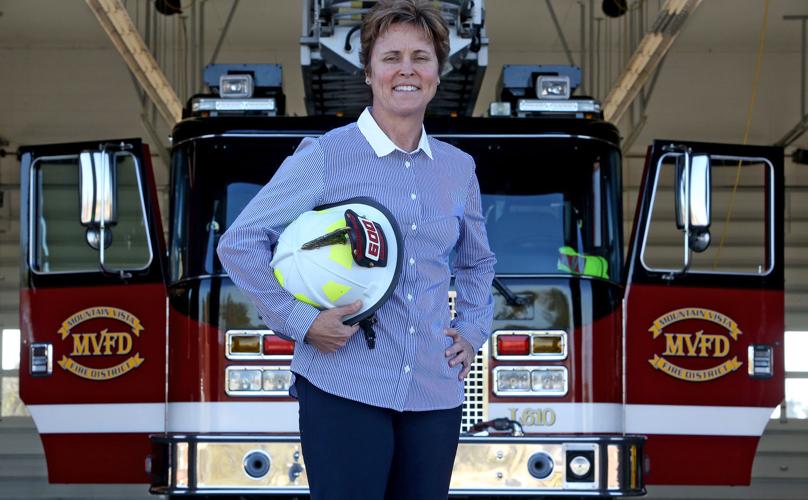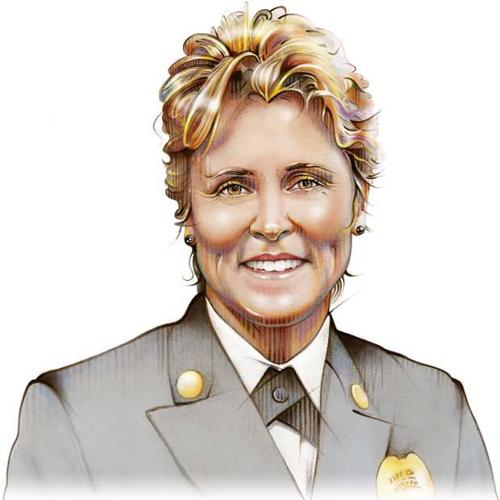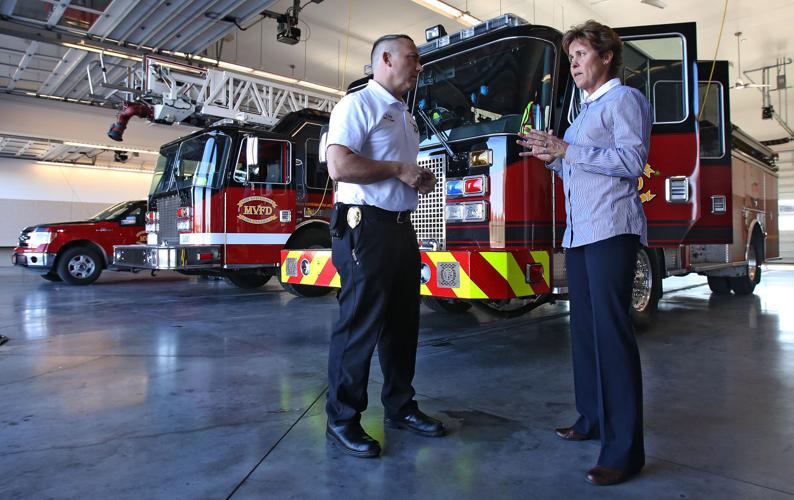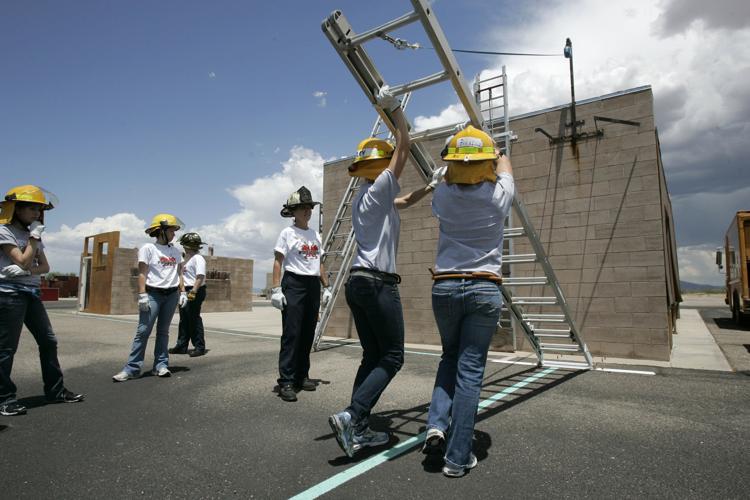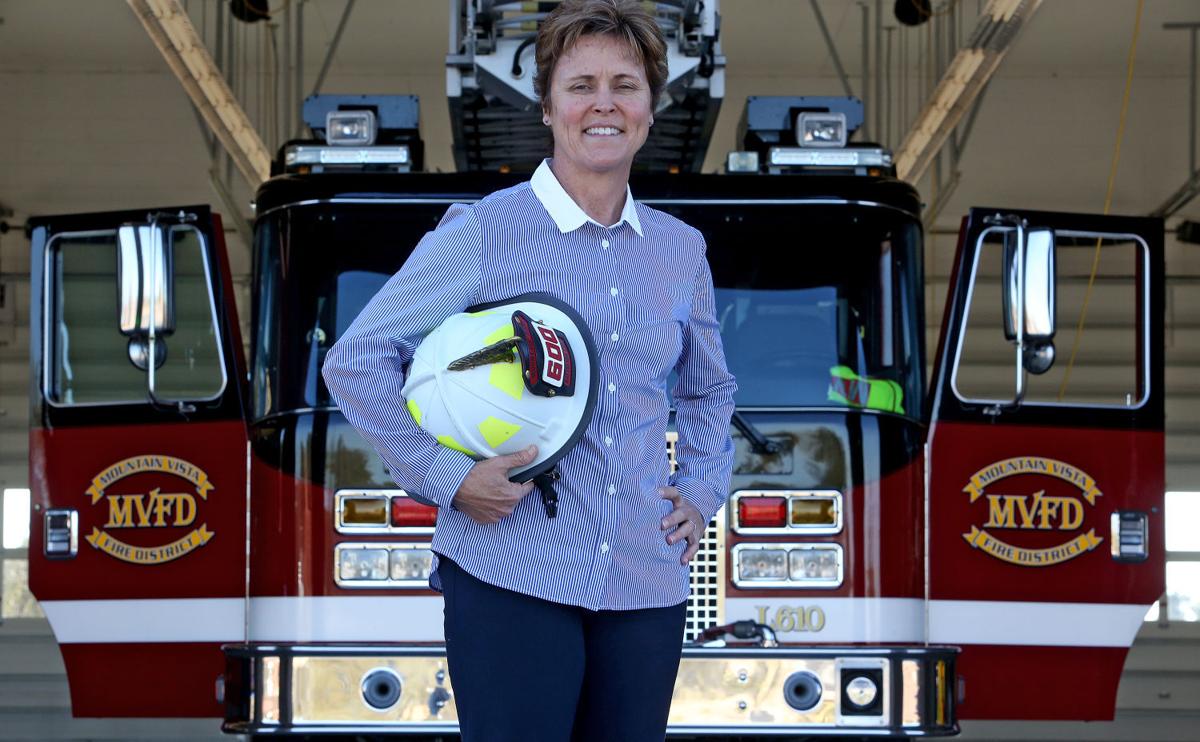This story was first published on Aug. 8, 2016
Cheryl Horvath, Tucson’s third-ever woman fire chief, is a literal and figurative boss.
She is the chief of Mountain Vista Fire District in northwest Tucson and says she “gets herself into trouble” advocating for gender and social equality on the web and in real life. She is raising a high school senior who wants to study forensic science. She has been president of the the International Association of Women in Fire and Emergency Services, chairs the Girl Scouts of Southern Arizona’s board, volunteers with Tucson’s January 8th Memorial Foundation and co-founded Camp Fury, a week-long training camp for girls interested in pursuing law enforcement and public safety careers. She plays golf and is addicted to “Dancing With the Stars.”

Cheryl Horvath
Read what Mountain Vista Fire's resident badass has to say about her new position, social justice and breaking social norms:
On being a fire chief:
It’s pretty darn cool. I feel like I’ve made it. I don’t want to say I’m at the end of a journey because I kind of feel like I’m beginning another one, so maybe I’m in the middle of something. The climb is over, so now it’s “what do I do with it?”
On breaking the glass ceiling in a 96 percent male-dominated profession:
I think what helped me is I came in the service when I was 32 years old. I think if I had come in the service when I was 21, it would have been a different experience for me. But I came in with some years on and I think I was able to handle a lot more. I think I demanded a lot more respect for myself, just based on having confidence walking in the door, opposed to a 21-year old walking in the door of a fire station being the only woman going, “Oh my god, what have I just gotten myself into?”
On feminism with a capital F:
I’m absolutely a feminist. Oh, absolutely. And I’m not afraid to say it, either — it’s not a dirty word like some people make it out to be.

After returning from a call, Battalion Chief Darin Reid talks with Cheryl Horvath, Mountain Vista Fire District’s new leader. Horvath was previously division chief with Northwest Fire, and is the third female to become a fire chief in the Tucson area.
On advocating for workplace equality IRL and online:
I do it everyday. I’m constantly advocating for issues that women are confronted with. I think we have to — we have to be part of the conversation, and we have to keep the conversation going.
I speak at conferences and write articles and get myself in trouble advocating on behalf of women — just kidding. But there are articles I’ve written online and if you read the comments, there are people accusing me of just trying to make a name for myself — you know, make money — which is funny because I don’t make a dime off any of that … You can tell it’s uncomfortable for people. Especially because the fire service is generally a traditional service, although out here in the western part of U.S. it’s more accepting.
On the place of social justice in public safety:
In public safety, we have a very unique opportunity to connect with the community. We have the opportunity to reach a broader audience. We have the opportunity to create partnerships with nonprofits, businesses that serve high-risk populations. And social justice is all about equal opportunity, so those kind of go hand in hand — when we’re serving high-risk groups, we’re giving them the opportunity to lead the quality of life everyone else leads.

Cheryl Horvath (middle, black helmet) instructs local high school girls lifting a ladder during a drill at a three-day fire camp at the Public Safety Training Academy.
On creating Camp Fury:
It’s all about non-traditional occupations. Show these girls they can become firefighters, police officers, fighter pilots, border patrol agents, federal agents, judges. We give the girls the opportunity to see women in just awesome leadership roles. It’s unfortunate, but I think young girls often get siloed in their thinking, and it’s society’s fault, but they get very siloed in their thinking of what they can and can’t do. So we want them to see firefighters come in all shapes and sizes, police officers come in all shapes and sizes, and everybody’s experience is different. It’s grown into this movement of just encouraging girls to be leaders in their communities.
On being a mentor for girls and young women:
[Girls and women] can do anything they put their minds to, as tried as that sounds, as simplistic as that sounds. It’s my turn to reach down and start helping these young women be what they want to be. I don’t even care if someone wants to come into me and start talking about being an attorney, let’s have the conversation. Because I want to help give that young lady the support she needs to keep going with her dream.
On being a badass:
I suppose I should consider myself a badass. I’ve had people tell me I am — let’s put it that way.
Editor’s note: This interview has been edited and condensed for clarity.


